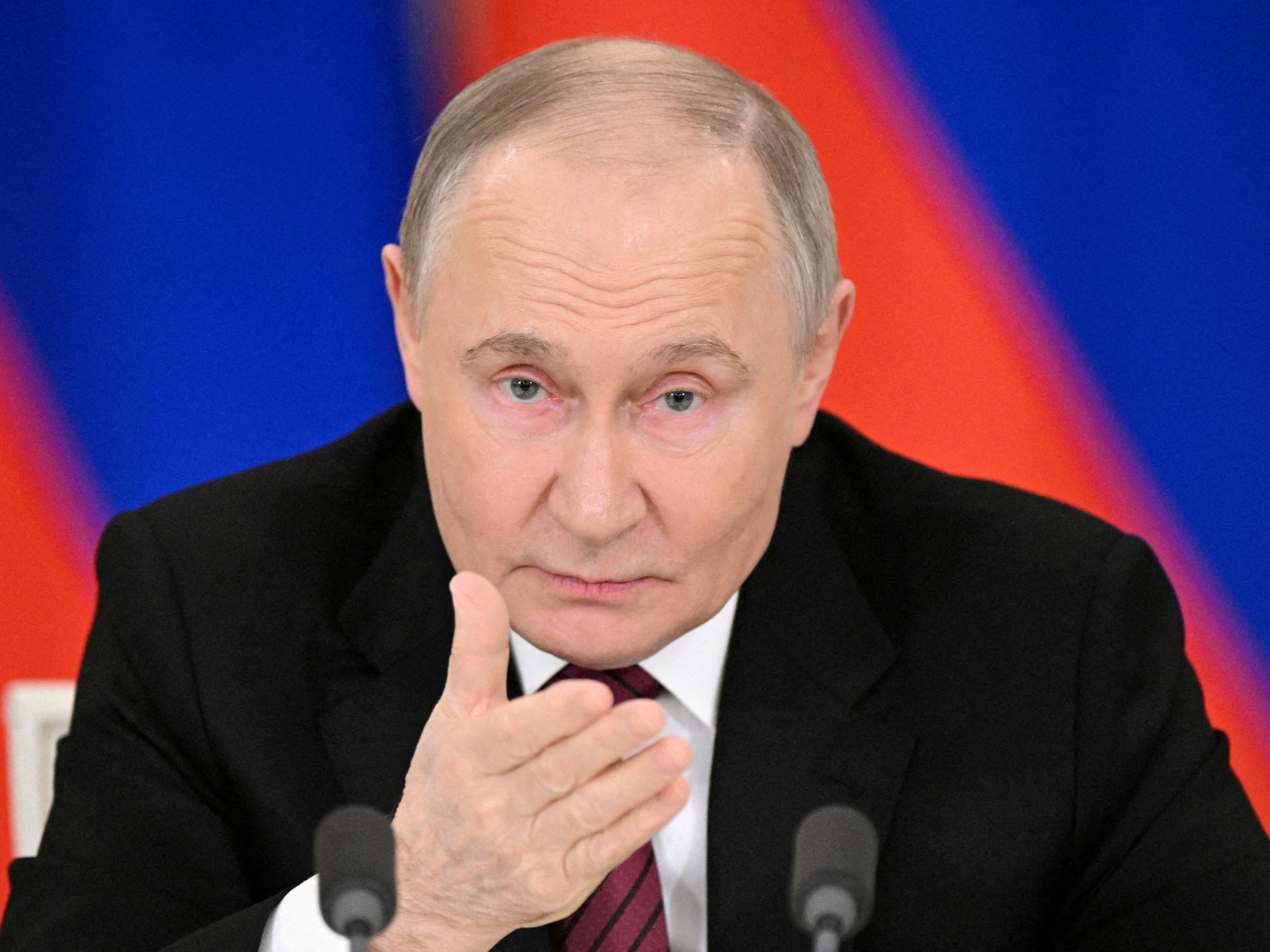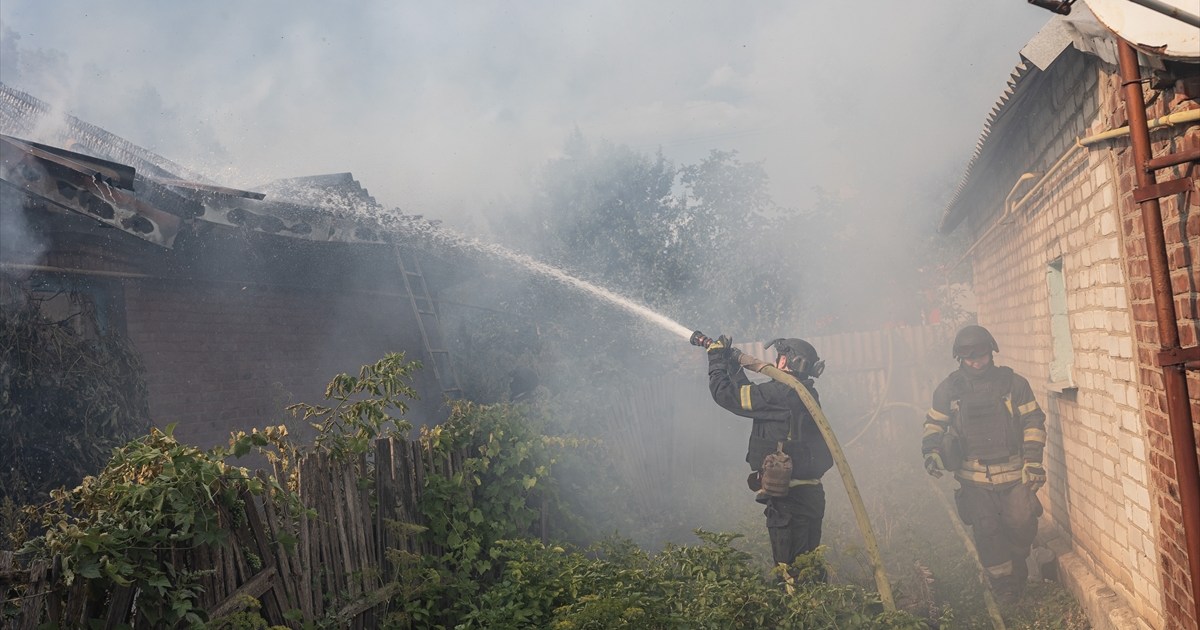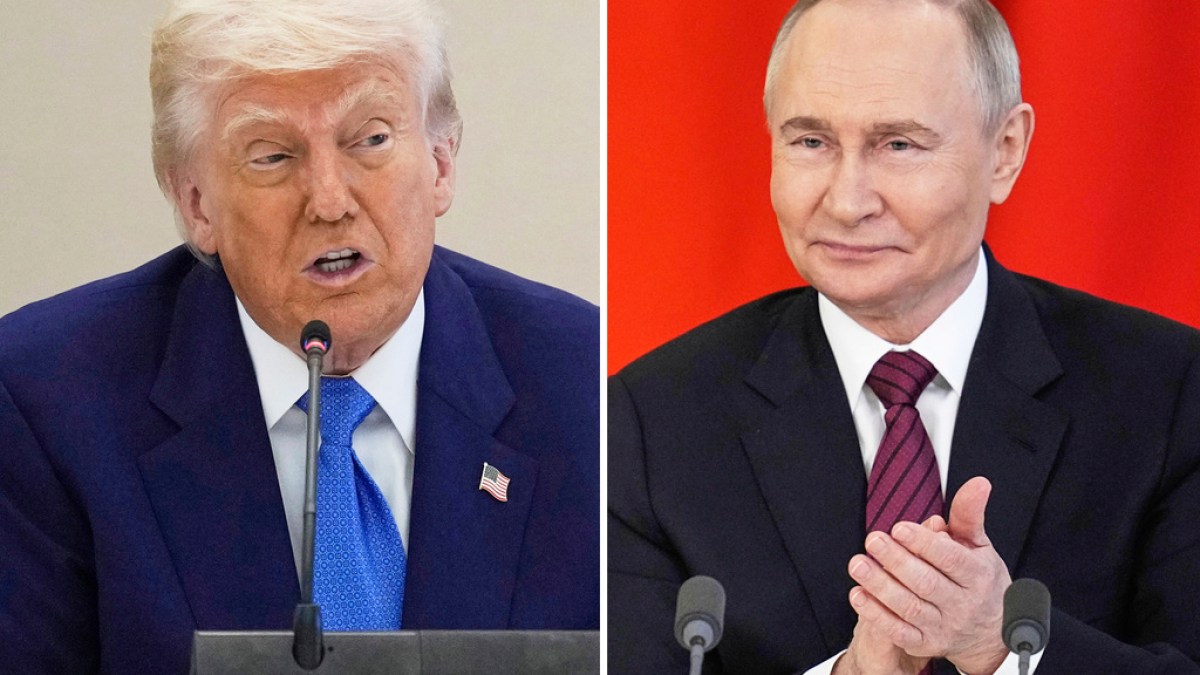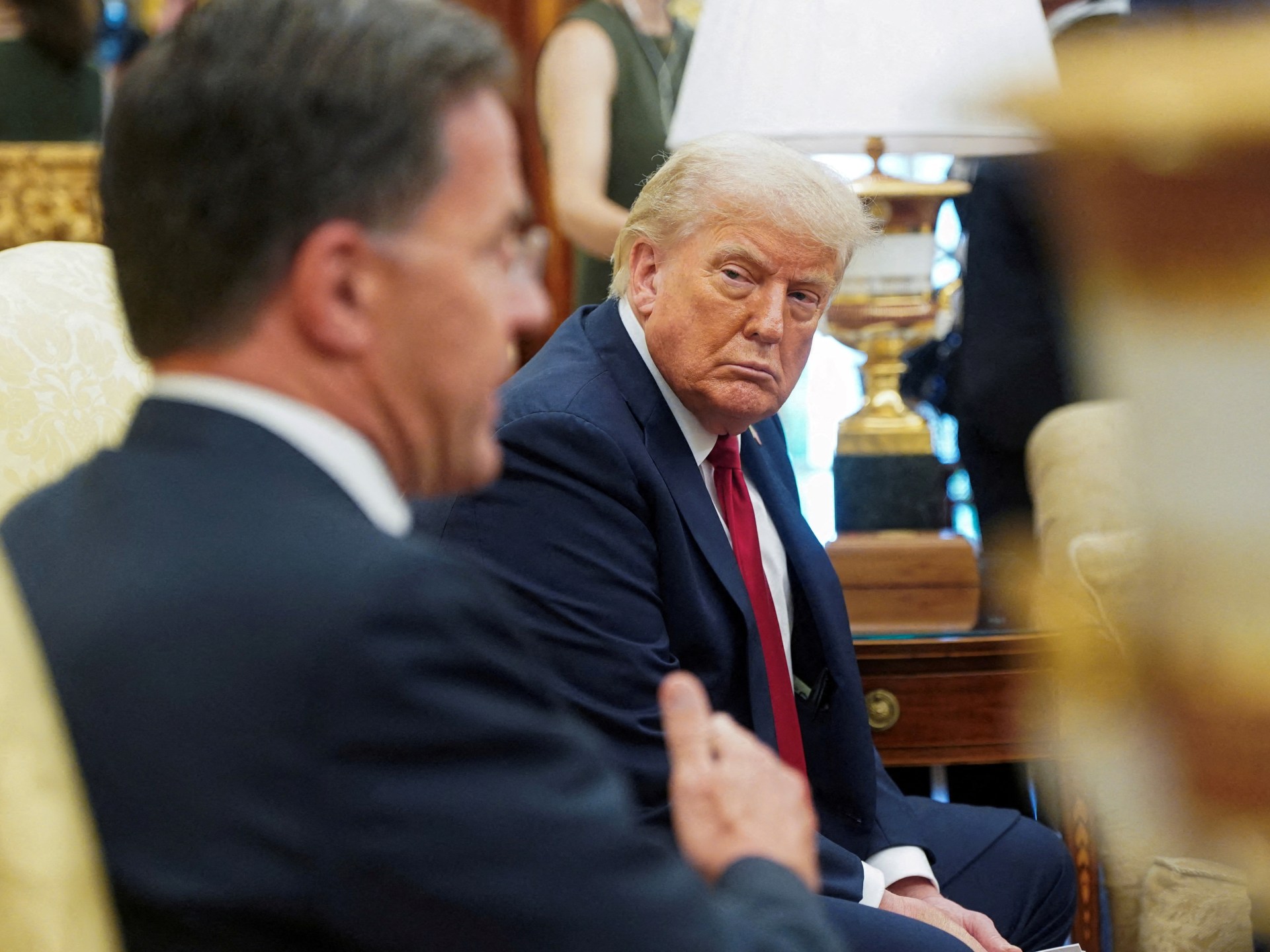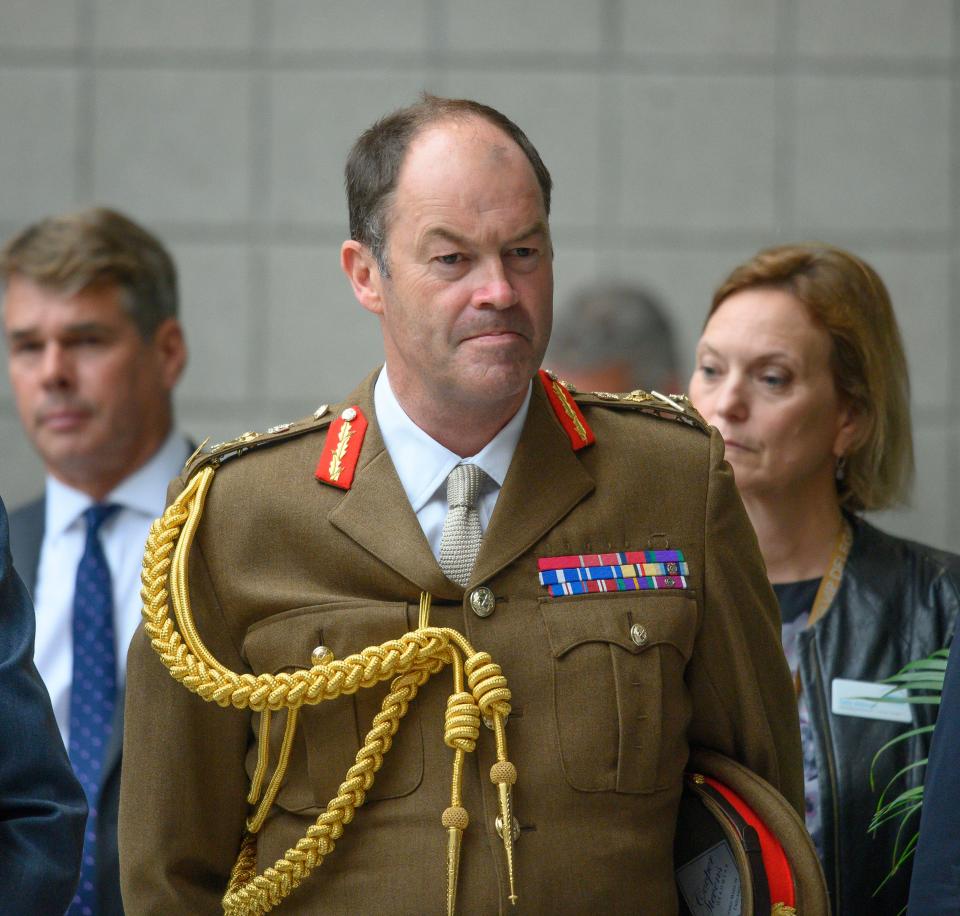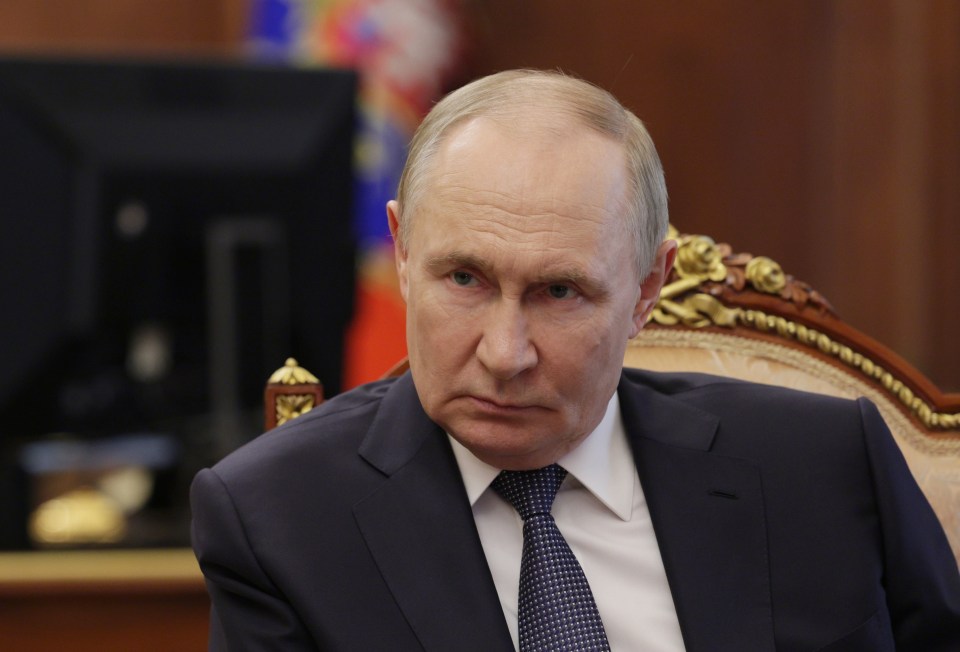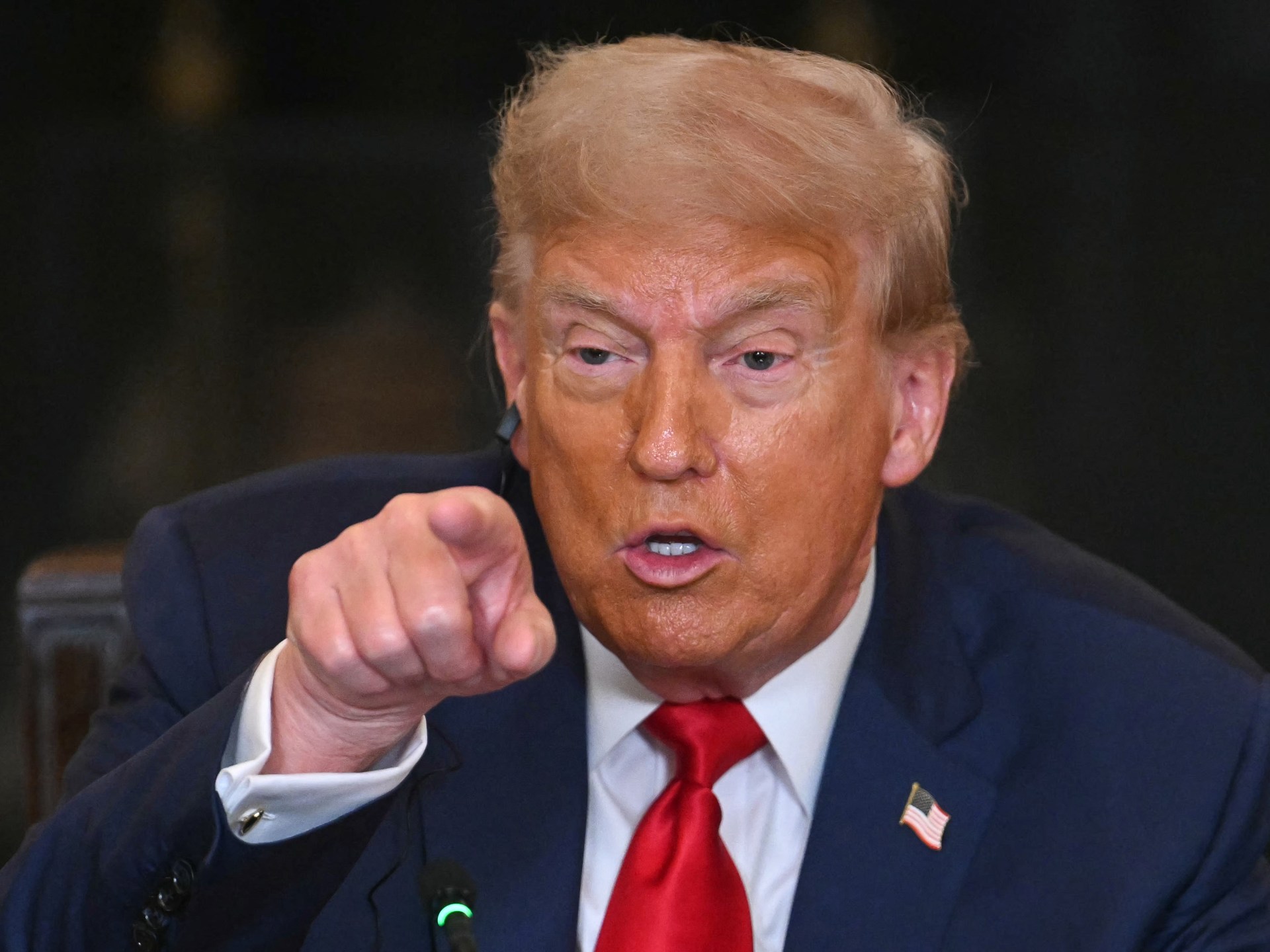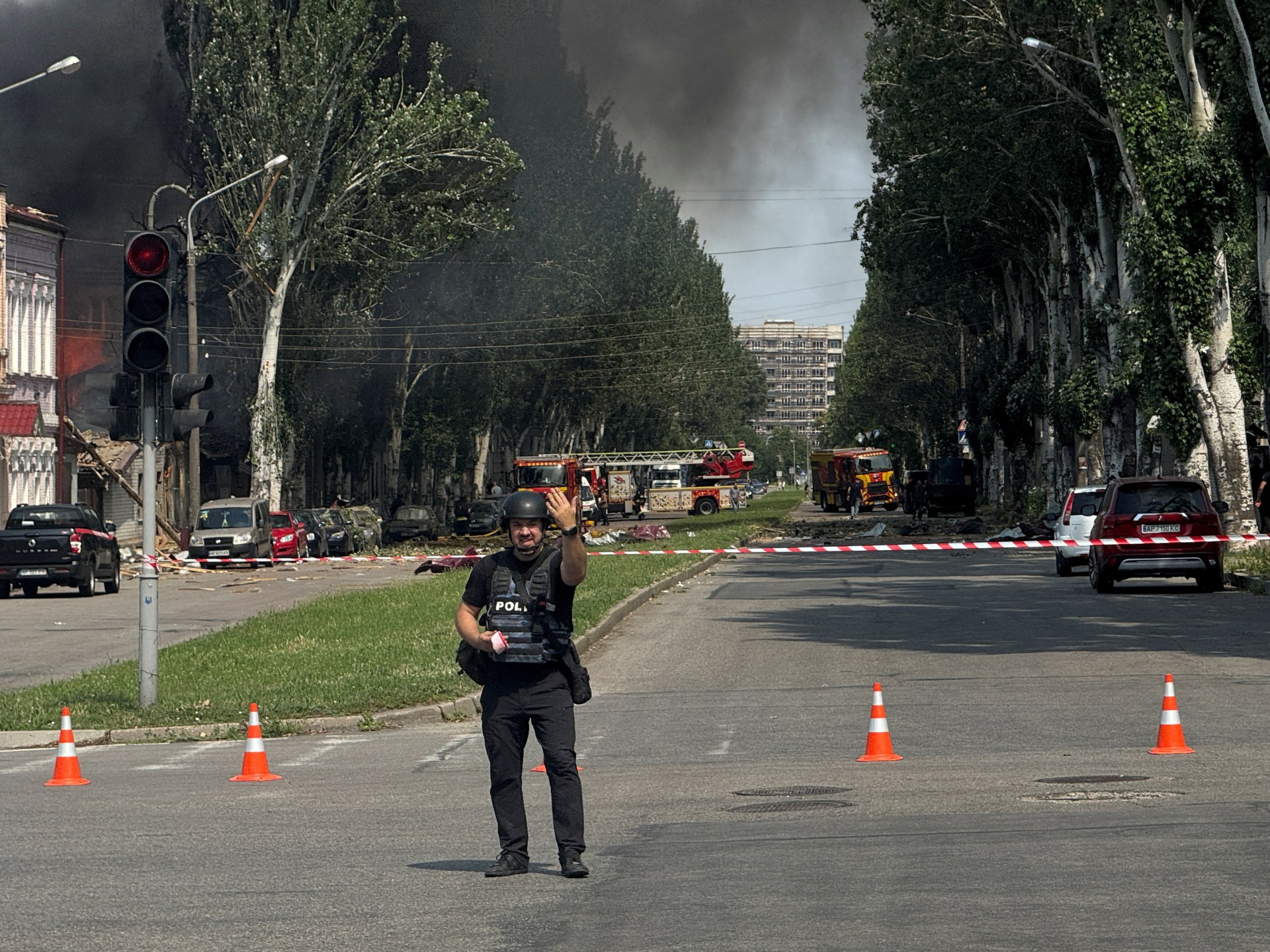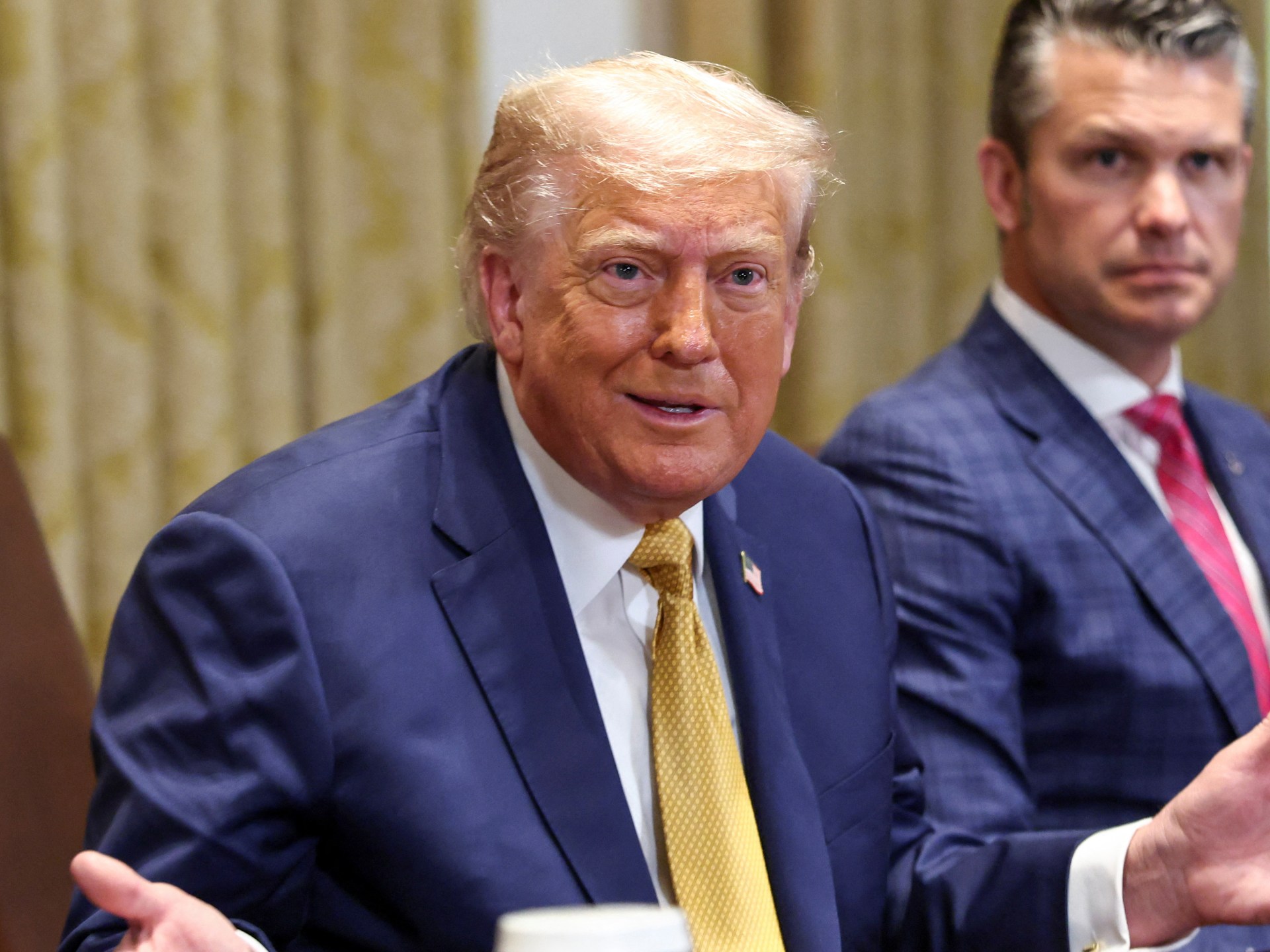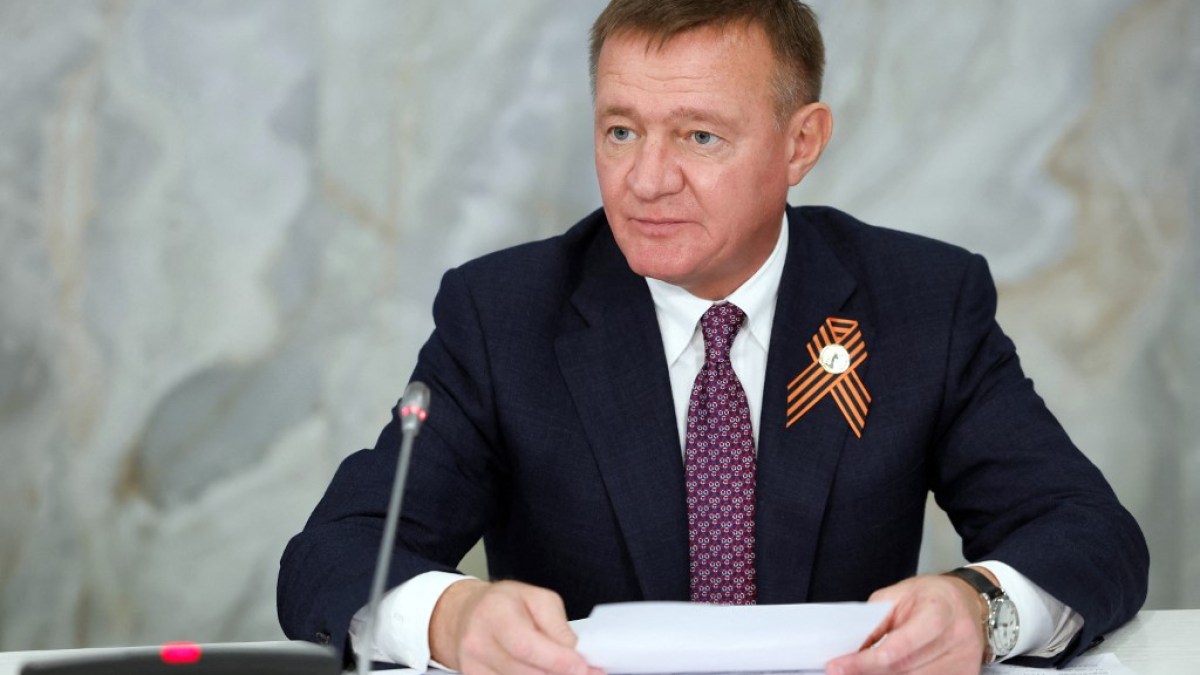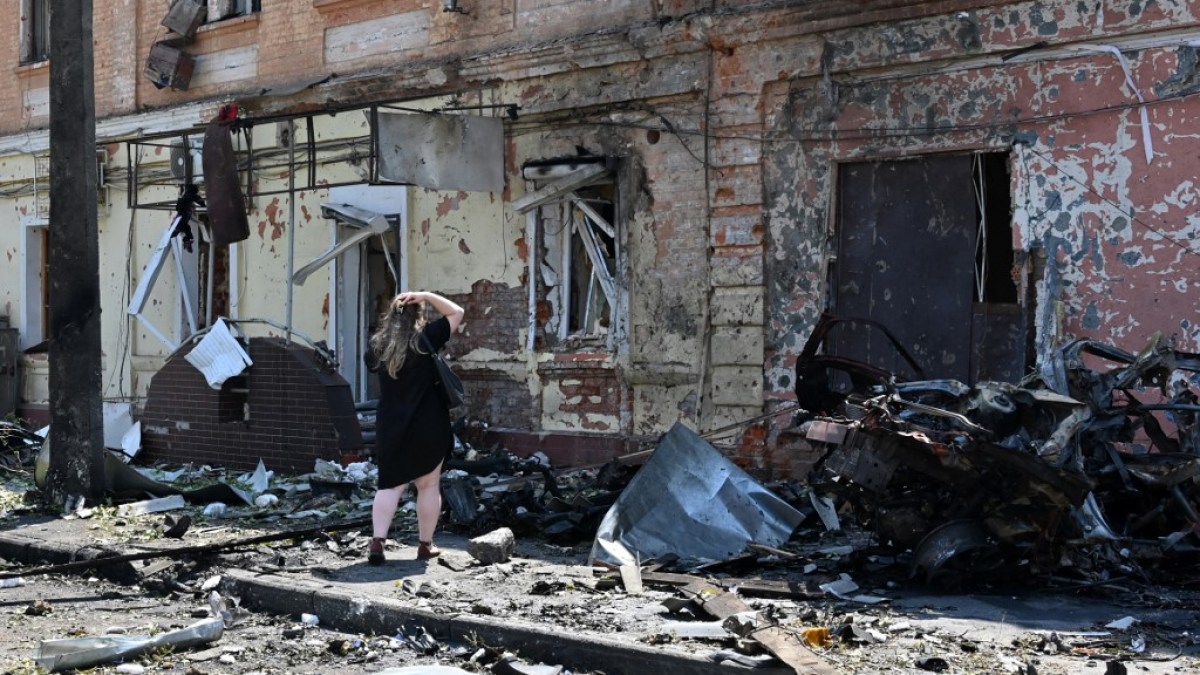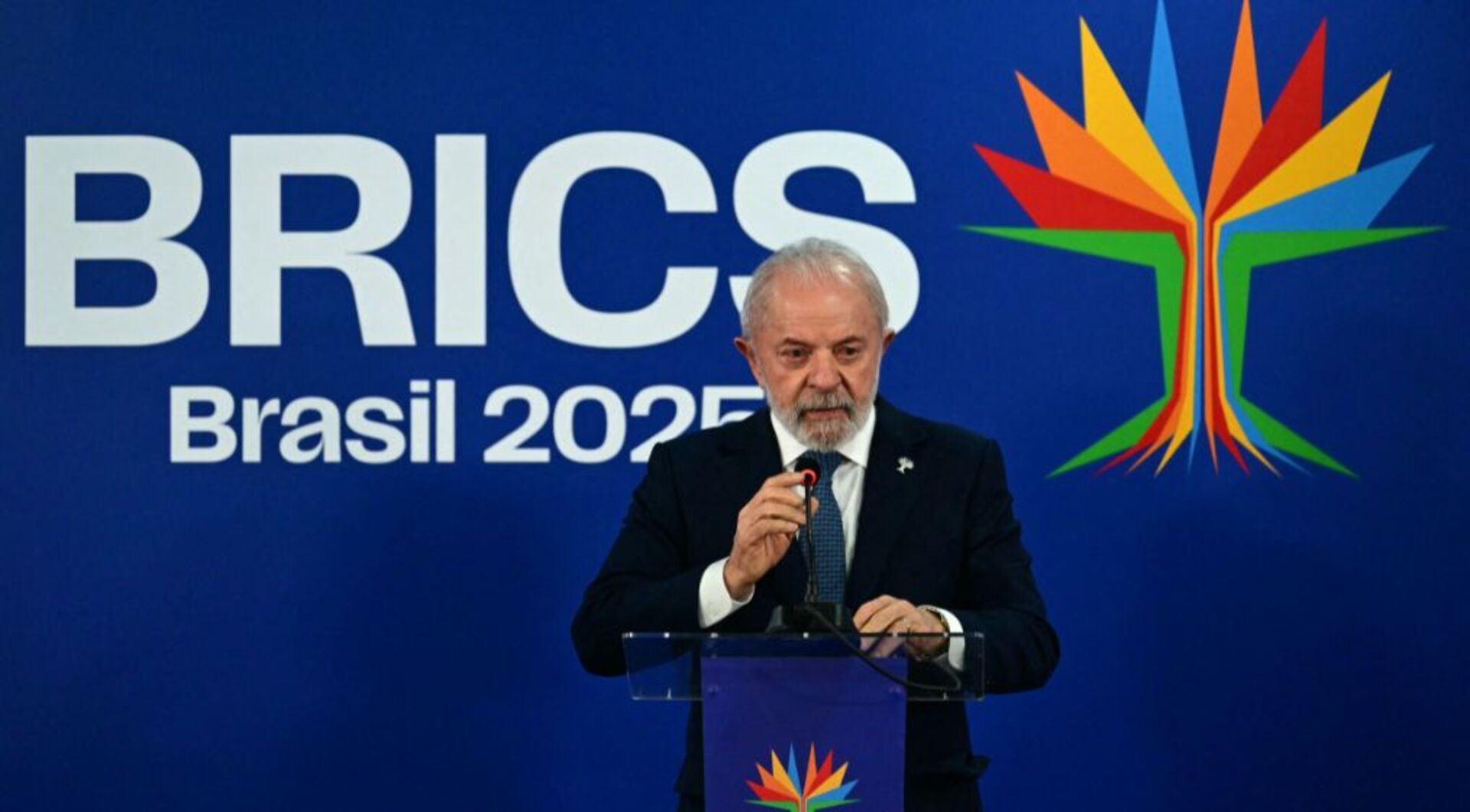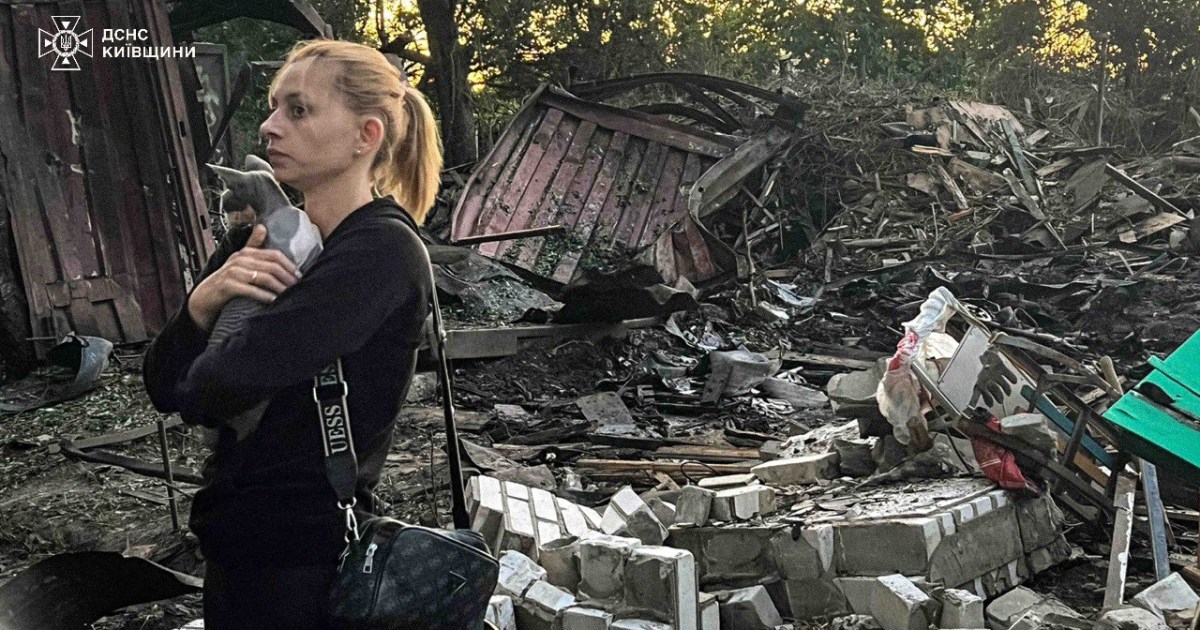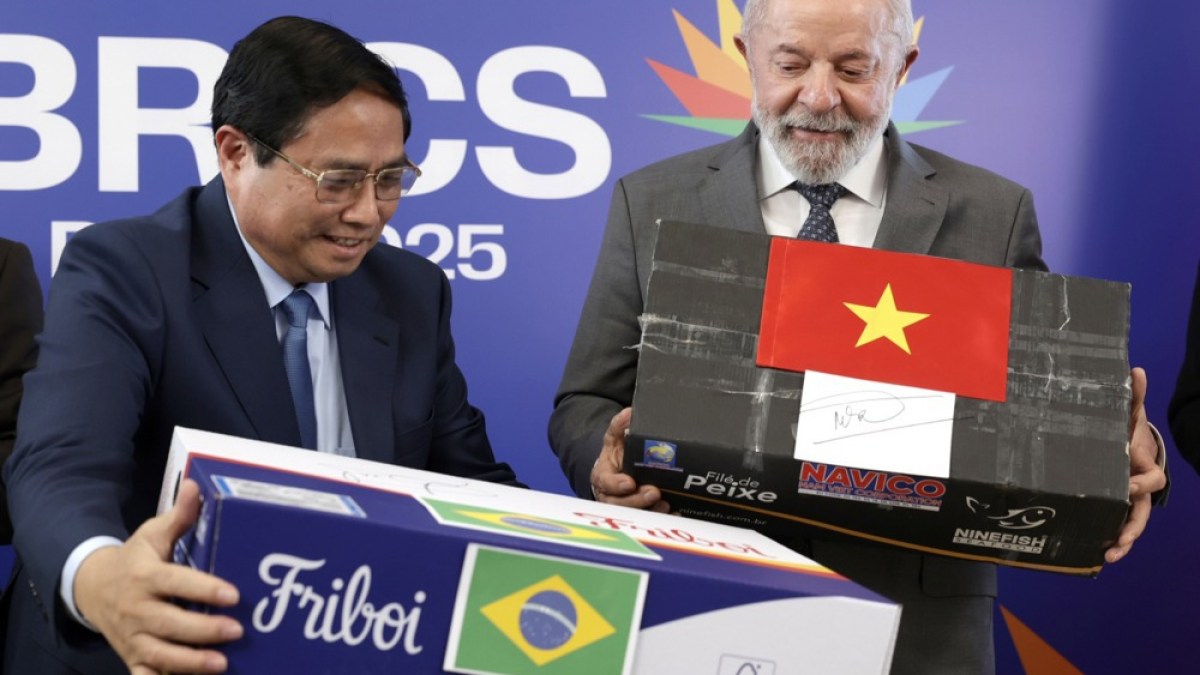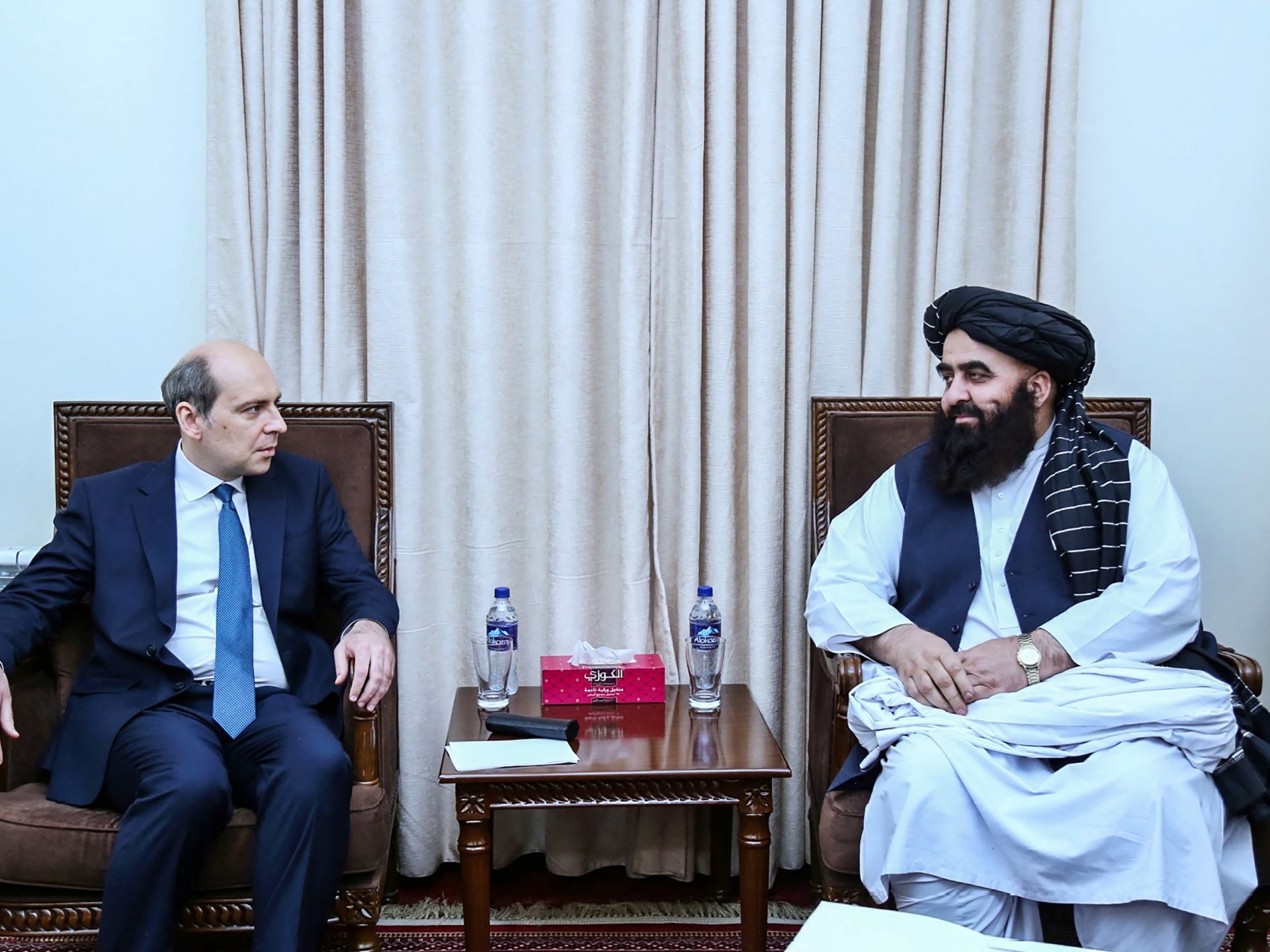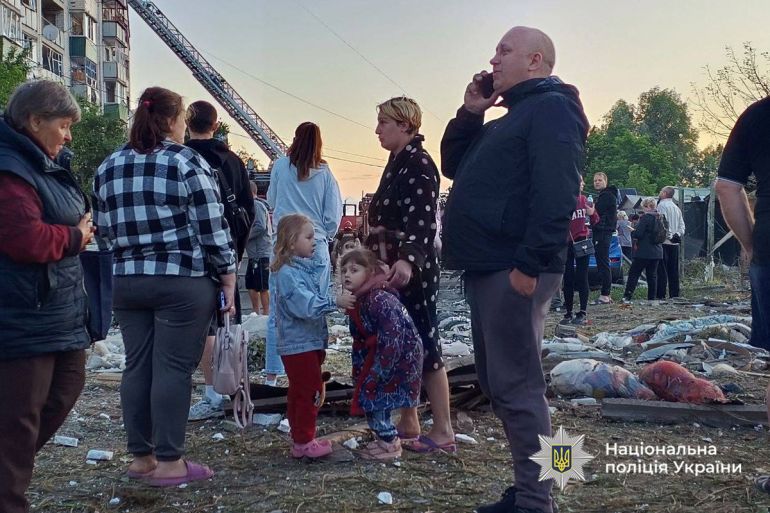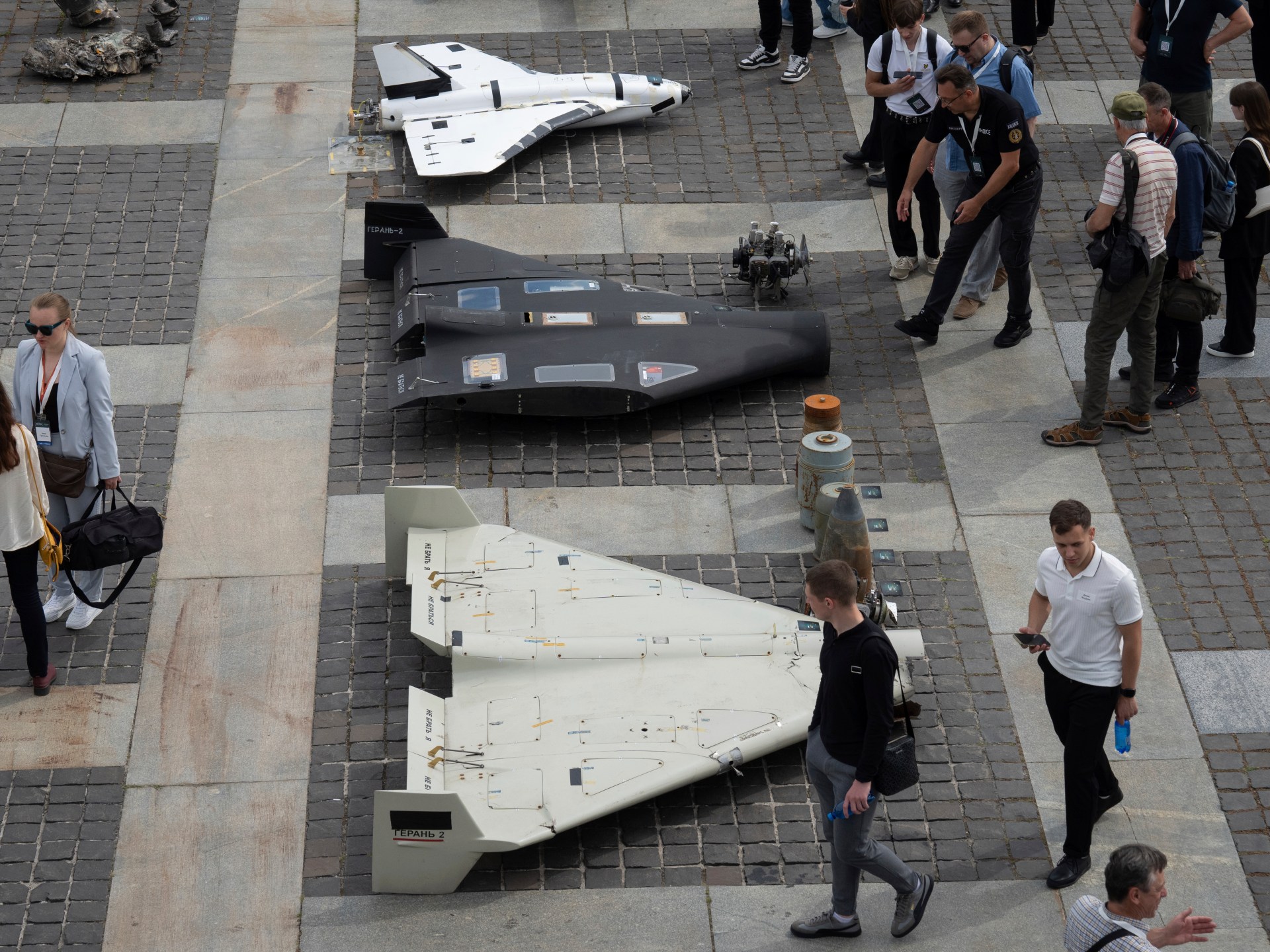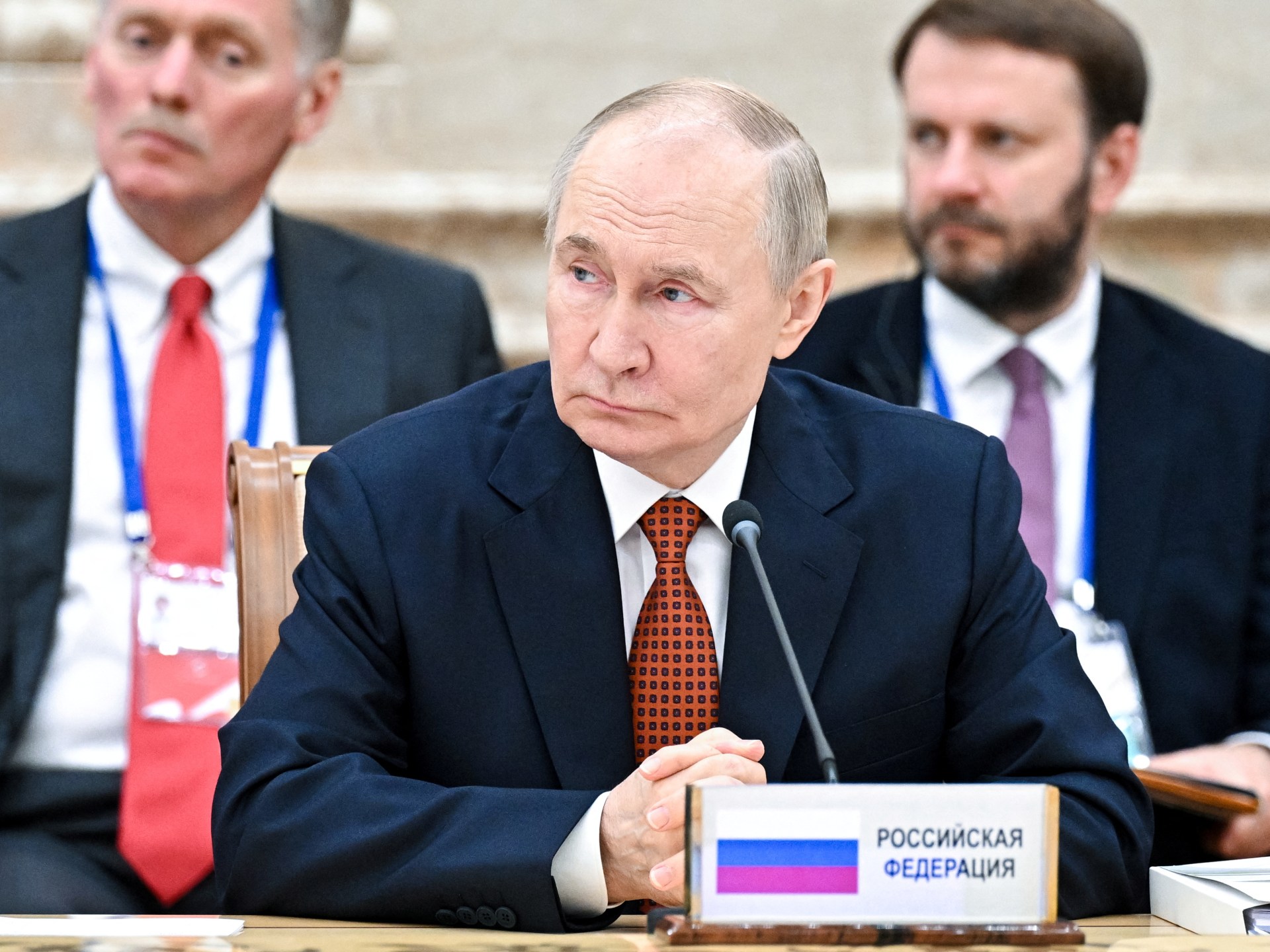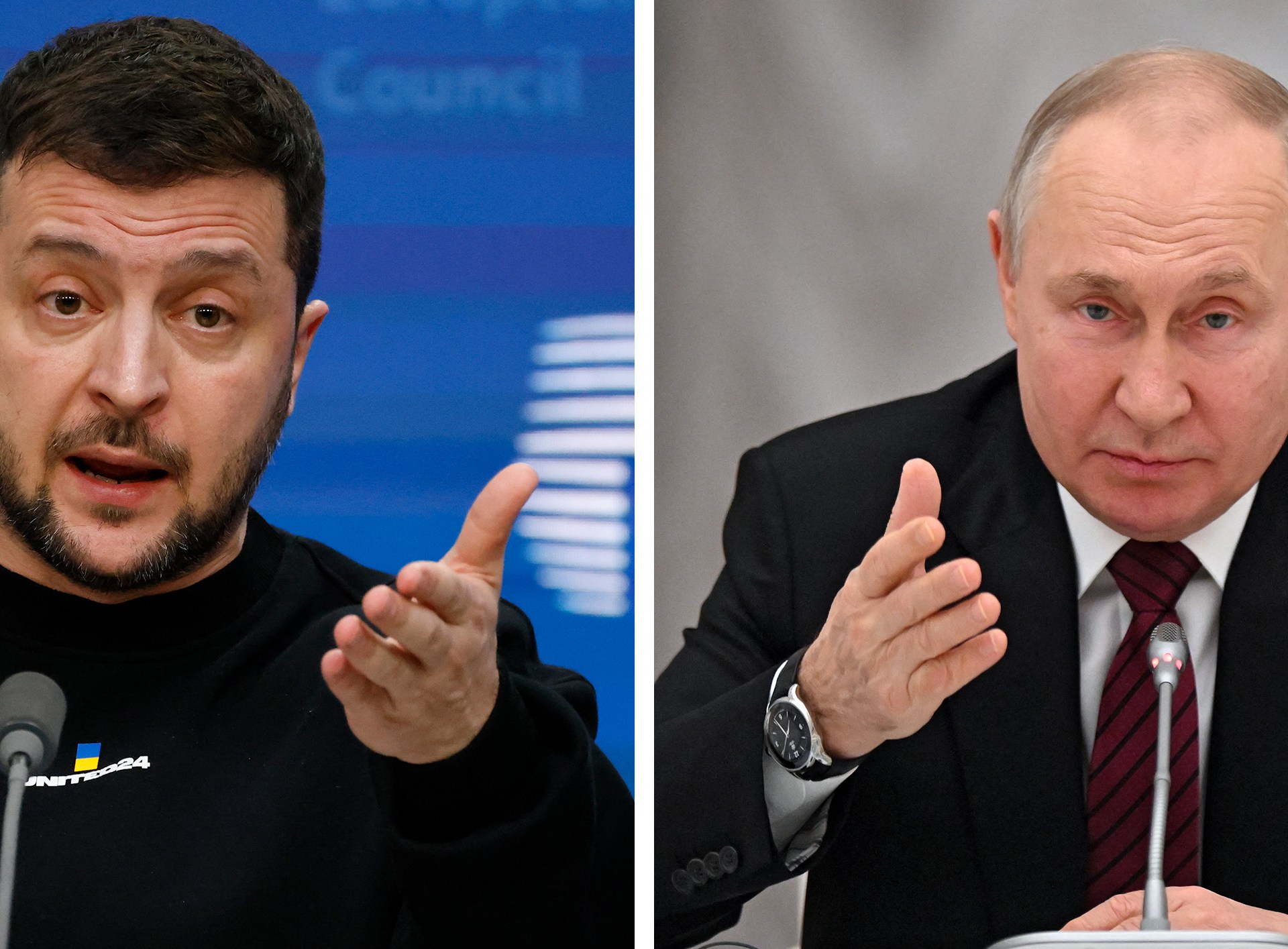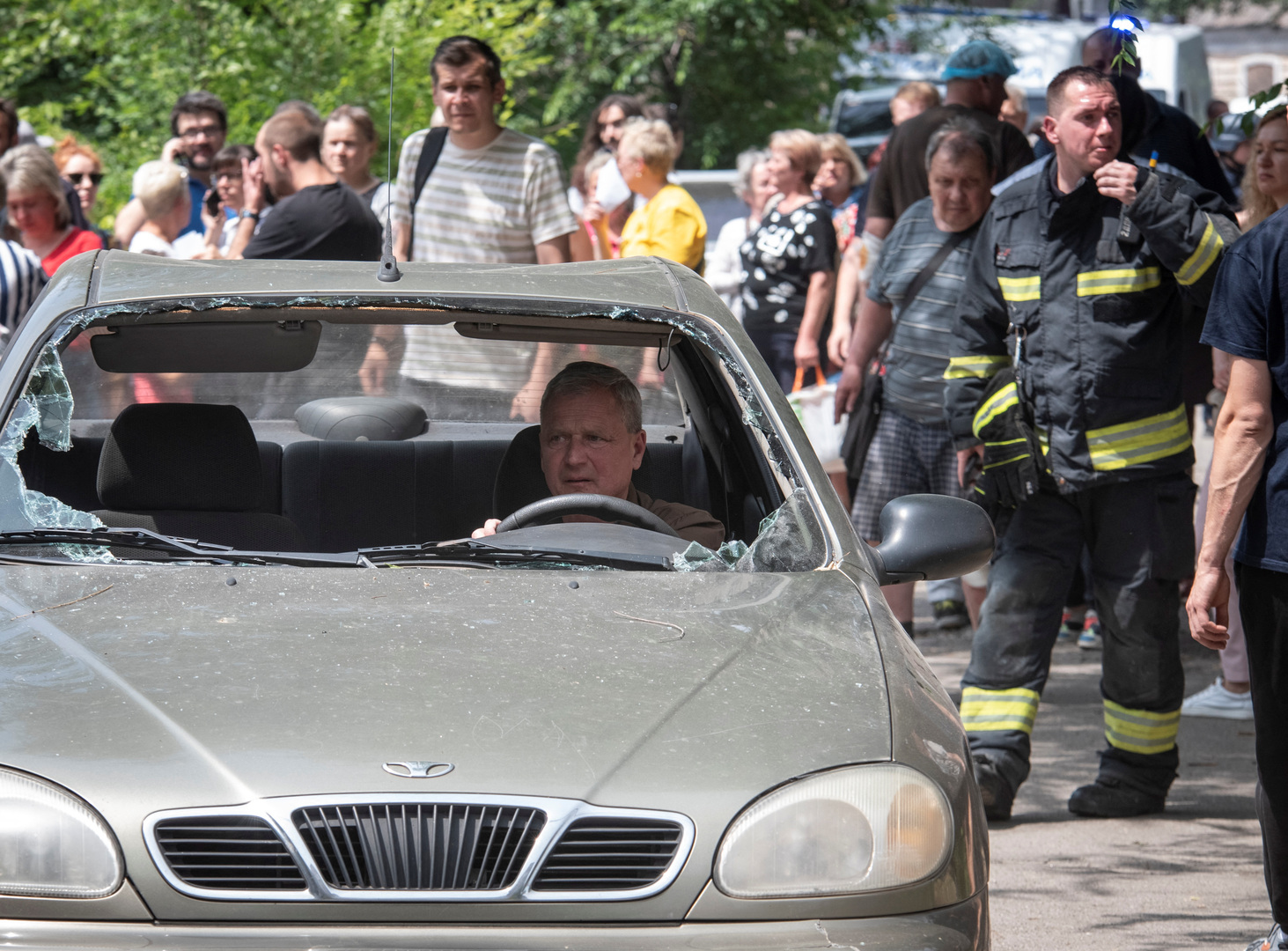Could Trump’s tariff threats force Putin into Ukraine peace deal? | Russia-Ukraine war News
United States President Donald Trump threatened to impose “very severe tariffs” on Russia on Monday if a peace agreement to end the Ukraine war is not reached in the next 50 days.
Trump has also unveiled a new agreement to supply Ukraine with more weapons.
On the campaign trail ahead of last year’s presidential election, Trump boasted that he would end the war in Ukraine within his first 24 hours in office.
However, after at least six phone conversations between Trump and his Russian counterpart, President Vladimir Putin, as well as several meetings between US officials and officials from Russia and Ukraine, no ceasefire deal has been reached.
In May, Putin refused to travel to Istanbul to meet with Ukrainian President Volodymyr Zelenskyy for peace talks. The two countries sent delegations instead, resulting in prisoner exchange agreements, only.
So, will Trump’s latest threat convince Russian President Vladimir Putin to change his stance on Ukraine?
What did Trump say about Russia and Ukraine this week?
Weapons for Ukraine
At a meeting with NATO Secretary-General Mark Rutte in the Oval Office on Monday, Trump said he was “disappointed” in Putin and that Ukraine would receive billions of dollars’ worth of US weapons.
“We’re going to make top-of-the-line weapons, and they’ll be sent to NATO,” Trump said, adding that NATO would pay for them. He added that this would include the Patriot air defence missiles that Ukraine has sought urgently.
“We have one country that has 17 Patriots getting ready to be shipped … We’re going to work a deal where the 17 will go, or a big portion of the 17 will go to the war site,” Trump said.
New tariffs for Russian goods
Trump said if Putin fails to sign a peace deal with Ukraine within 50 days of Monday this week, he will impose “very severe” trade tariffs on Russia, as well as secondary tariffs on other countries.
“We’re going to be doing secondary tariffs,” Trump said. “If we don’t have a deal in 50 days, it’s very simple, and they’ll be at 100 percent.”
Since the start of the Ukraine war, the US and its allies have imposed at least 21,692 separate sanctions on Russian individuals, media organisations and institutions, targeting sectors including the military, energy, aviation, shipbuilding and telecommunications.
While the trade relationship between US and Russia might be relatively marginal, “secondary tariffs” – first threatened by Trump in March but not implemented – would affect countries such as India and China purchasing Russian oil.
In 2024, Russian oil made up 35 percent of India’s total crude imports and 19 percent of China’s oil imports. Turkiye also relies heavily on Russian oil, sourcing up to 58 percent of its refined petroleum imports from Russia in 2023.
Some Western countries could also be hit by secondary tariffs. In 2024, European countries spent more than $700m on Russian uranium products, according to an analysis by the Brussels-based think tank Bruegel, which used data from the European Union’s statistical office, Eurostat.
How has Russia responded to Trump’s latest threats?
Putin has not responded personally.
However, Kremlin spokesperson Dmitry Peskov told reporters on Tuesday: “The US president’s statements are very serious. Some of them are addressed personally to President Putin. We certainly need time to analyse what was said in Washington.”
Peskov stated, however, that decisions made in Washington and other NATO countries were “perceived by the Ukrainian side not as a signal for peace, but as a signal to continue the war”.
Dmitry Medvedev, former Russian president and current deputy chair of Russia’s Security Council, wrote in an X post on Tuesday that Russia did not care about Trump’s “theatrical ultimatum”.
Trump issued a theatrical ultimatum to the Kremlin.
The world shuddered, expecting the consequences.
Belligerent Europe was disappointed.
Russia didn’t care.— Dmitry Medvedev (@MedvedevRussiaE) July 15, 2025
Sergei Ryabkov, a senior Russian diplomat, said on Tuesday: “We first and foremost note that any attempts to make demands – especially ultimatums – are unacceptable for us,” Russia’s TASS news agency reported.
The Russian stock market appeared untroubled by Trump’s threat, rising 2.7 percent on Monday, according to the Moscow Stock Exchange.
The Russian rouble initially lost value against the US dollar but then recovered after Trump threatened new tariffs on Russia. According to data from financial analysis group LSEG, the rouble was just 0.2 percent weaker at the end of the day, trading at 78.10 to the US dollar after weakening to 78.75 earlier in the day.
The rouble gained 0.9 percent to 10.87 against the Chinese yuan, the most traded foreign currency in Russia. This was after it had weakened by more than 1 percent on Friday.
Will US weapons help Ukraine significantly?
Marina Miron, a postdoctoral researcher at the defence studies department at King’s College London, told Al Jazeera that the Patriot missile systems that Trump has pledged to sell to Ukraine are long-range air defences best suited for shooting down ballistic missiles such as Russia’s Iskander M.
“But Ukraine will need short- to medium-range systems as well as multiple rocket launchers in order to defend itself. So it’s more of a political move for Trump rather than anything else,” Miron said.
She added that the significance of these weapons depends on several factors, including whether Ukraine will get 17 systems as allegedly promised, and where the systems would be placed.
How has Trump changed his stance on aiding Ukraine?
A month into his presidential term, Trump posted on his Truth Social platform, blaming Zelenskyy for continuing the war with Russia and saying the Ukrainian president “talked the United States of America into spending $350 Billion Dollars, to go into a War that couldn’t be won, that never had to start”.
The US has sent Ukraine about $134bn in aid so far – not $350bn – according to the Kiel Institute for the World Economy.
Trump’s MAGA (Make America Great Again) base has also been critical of US funding for Ukraine.
In early July, the Trump administration announced a decision to “pause” arms deliveries to Kyiv, but reversed this a week later. When Trump announced the reversal on July 8, his supporters voiced criticism.
Derrick Evans, one of Trump’s supporters who was among the throng which stormed the US Capitol on January 6, 2021, and who was later arrested but then pardoned by Trump in January this year, wrote on X: “I did not vote for this.” Conservative social media duo Keith and Kevin Hodge posted on X: “Who in the hell is telling Trump that we need to send more weapons to Ukraine?”
Trump appears to be attempting to address these criticisms by saying that instead of supplying weapons to Ukraine, he will sell them to NATO.
Furthermore, Miron said, the US is not losing anything by selling weapons, since NATO will be paying for them. “There are not enough systems being provided to make a substantial difference,” she said.
Could Trump’s latest threats force Putin to change his policy?
While Putin has repeatedly voiced his determination to achieve his war aims, he has not specifically stated what they are. Broadly, he has sought territorial gains within Ukraine and has opposed Ukraine’s membership in NATO – these have not changed and are unlikely to do so, according to observers.
“If you were to describe Russia’s approach, it’s ‘keep calm and carry on,’” Miron said, referring to the fact that most Russian officials have not responded to Trump’s threat.
“So they are not going for this informational trap,” she said.
Has Putin changed his stance at all since Russia invaded Ukraine?
Miron said Putin has expanded his goals since Ukraine’s major cross-border incursion to the Kursk region in August last year. Ukraine’s push into Kursk, which took the Kremlin by surprise, marked the most significant Ukrainian attack inside Russian territory since the war began.
In May this year, Russian troops were tasked with establishing a buffer zone stretching up to 10km (6 miles) into Ukraine’s Dnipropetrovsk Oblast, according to Ukraine’s military intelligence chief Kyrylo Budanov, in an interview with Bloomberg published on July 11.
“I have already said that a decision was made to create the necessary security buffer zone along the border. Our armed forces are currently solving this problem. Enemy firing points are being actively suppressed, the work is under way,” Putin said back then.
While Putin did not provide much detail about what the buffer zones would entail, Russian General Viktor Sobolev said they would allow Russia to push Ukraine’s long-range missiles out of striking range, Ukrainian media reported.
